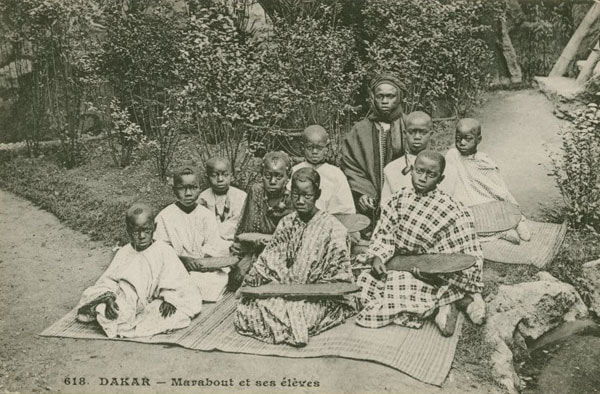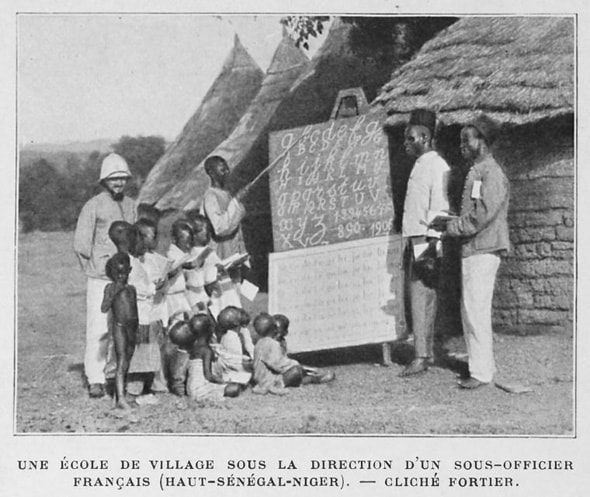domination by assimilation
|
The French, for their part, established a highly centralized administrative system that was influenced by their ideology of colonialism and their national tradition of extreme administrative centralism. Their colonial ideology explicitly claimed that they were on a "civilizing mission" to lift the benighted "natives" out of backwardness to the new status of civilized French Africans. To achieve this, the French used the policy of assimilation, whereby through acculturation and education and the fulfillment of some formal conditions, some "natives" would become evolved and civilized French Africans. In practice, the stringent conditions set for citizenship made it virtually impossible for most colonial subjects to become French citizens. For example, potential citizens were supposed to speak French fluently, to have served the French meritoriously, to have won an award, and so on. If they achieved French citizenship, they would have French rights and could only be tried by French courts, not under indigénat, the French colonial doctrine and legal practice whereby colonial "subjects" could be tried by French administrative officials or military commanders and sentenced to two years of forced labor without due process. However, since France would not provide the educational system to train all its colonized subjects to speak French and would not establish administrative and social systems to employ all its subjects, assimilation was more an imperialist political and ideological posture than a serious political objective.
|
In terms of the actual administrative system in its various African colonies—Algeria, Tunisia, and Morocco in North Africa, and Senegal, French Guinea, French Sudan, Upper Volta, Dahomey, and others in West Africa, and Gabon, Congo-Brazzaville, Ubangi-Shari in Central Africa—the French used a system of direct rule. They also created federations in West Africa and Central Africa. In the colonial capitals the governors were responsible to the minister of colonies in Paris. Most laws and policies were sent from Paris, and the governors who ruled with general councils were expected to enforce them in line with France's centralist traditions. The colonies were also subdivided into smaller administrative units as follows: cercles under commandant du Cercles, subdivisions under chef de subdivisions, and at the next level, cantons were administered by African chiefs who were in effect like the British warrant chiefs.
|
While France tried to maintain this highly centralized system, in some parts of its colonies where it encountered strongly established centralized state systems, the French were compelled to adopt the policy of association, a system of rule operating in alliance with preexisting African ruling institutions and leaders. Thus it was somewhat like British indirect rule, although the French still remained committed to the doctrine of assimilation. In the association system, local governments were run with African rulers whom the French organized at three levels and grades: chef de province (provincial chief); chef de canton (district chiefs), and chef de village (village chief). In practice, the French system combined elements of direct administration and indirect rule.
In general, the French administrative system was more centralized, bureaucratic, and interventionist than the British system of colonial rule. The other colonial powers— Germany, Portugal, Spain, Belgium, and Italy—used varied administrative systems to facilitate control and economic exploitation. However, no matter the system, they were all alien, authoritarian, and bureaucratic, and distorted African political and social organizations and undermined their moral authority and political legitimacy as governing structures.
In general, the French administrative system was more centralized, bureaucratic, and interventionist than the British system of colonial rule. The other colonial powers— Germany, Portugal, Spain, Belgium, and Italy—used varied administrative systems to facilitate control and economic exploitation. However, no matter the system, they were all alien, authoritarian, and bureaucratic, and distorted African political and social organizations and undermined their moral authority and political legitimacy as governing structures.

